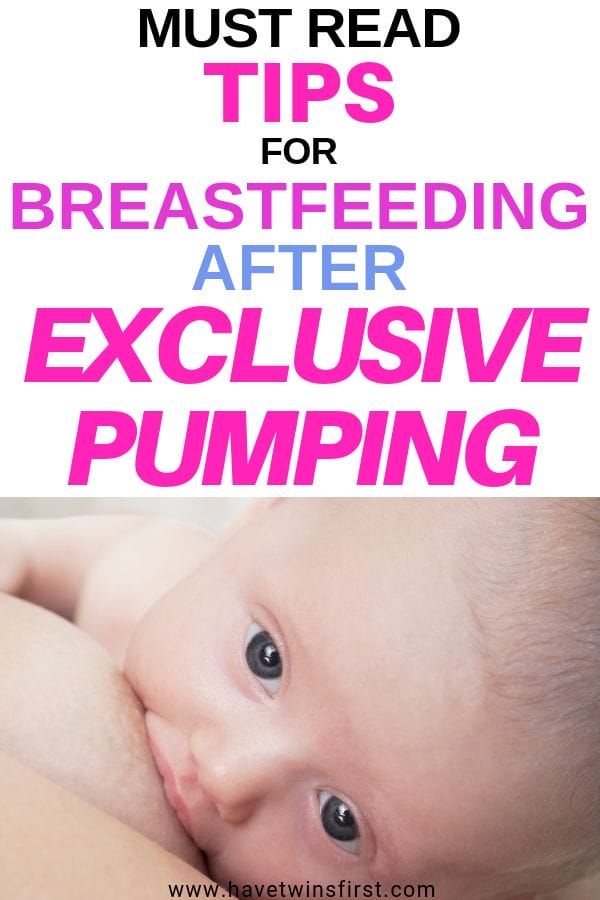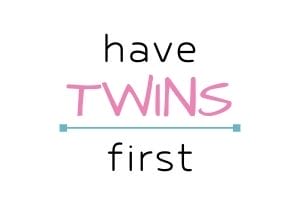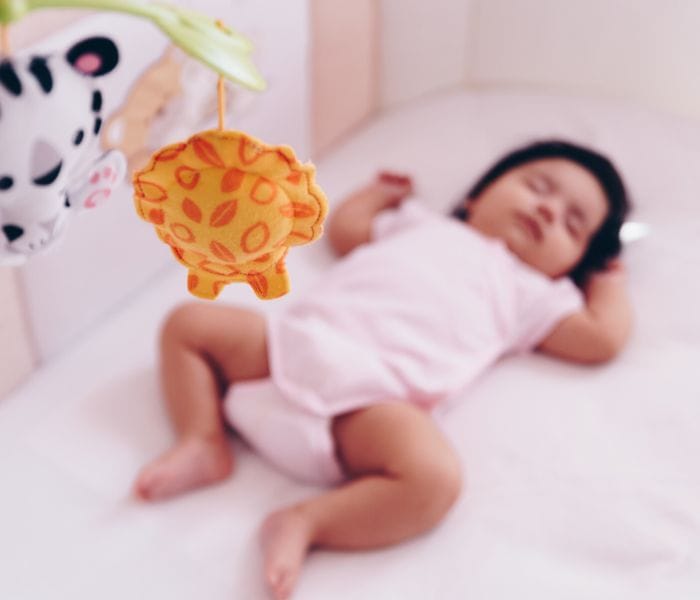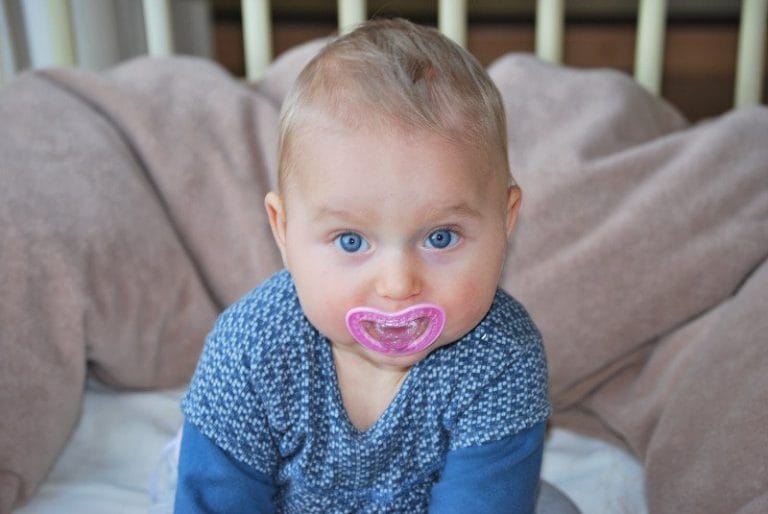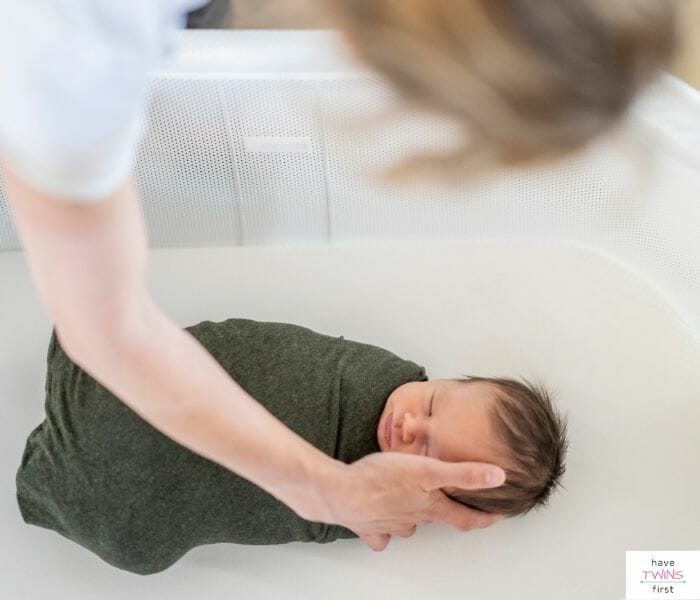What is it like to try breastfeeding after exclusively pumping? That’s what I am covering in this post because I did exactly that.
And let me tell you, I was really nervous about trying to breastfeed again after my tough experience where I was only able to pump breast milk for my twins.
The good news is I was able to breastfeed my singleton, almost exclusively, for over one year. I did supplement with a very small amount of formula. But, I think this allowed me to breastfeed for longer.
On top of this, I was working full time, so this included pumping at work after my baby was 3 months old.
Please note, there are affiliate links in this post. Read my privacy & disclosure policy at the bottom of this page to learn more.
Transitioning To Breastfeeding After Exclusively Pumping For Premature Babies Vs. Full Term Babies
For me personally, but I think you might find this with a lot of mothers, the biggest driver of exclusively pumping after my first pregnancy was having babies that were born prematurely.
I also happened to have twins, which made it even more complicated. I was trying to keep up with providing breast milk for two babies.
The earlier babies are born in pregnancy, the weaker their suckling reflex will be. The suckling reflex is critical for successful breastfeeding and it is very common for moms of premature babies to pump breast milk at first.
Maybe you had a premature baby and have been exclusively pumping and want to switch over to breastfeeding. Or, maybe you are like me and exclusively pumped for your previous baby (or babies), but this time around you are hoping to breastfeed.
Read on to see what breastfeeding after exclusively pumping was like and to get tips to successfully transition from pumping to breastfeeding.
Postpartum Recovery And Breastfeeding
Another important factor for successful breastfeeding is postpartum recovery. My postpartum recovery with the twins was rough. I ended up with a spinal headache the first week postpartum.
Pumping for 10 minute sessions was hard enough, I can’t imagine trying to breastfeed a newborn with a spinal headache.
Meanwhile, my labor and delivery with my singleton was a breeze by comparison to the twins. And, I would describe my postpartum recovery to be pretty standard.
Whatever happens during labor and delivery will have a big impact on how you feel postpartum.
Depending on how you are feeling, you might find it is easier to pump rather than breastfeed. If this is the case, then I recommend you do the thing that is easier for you.
Don’t forget, the first 2 weeks of breastfeeding are the hardest. So, if you are also dealing with a really rough recovery from labor and delivery, then pumping might be a better option when compared with breastfeeding.
How To Switch To & Reintroduce Breastfeeding After Exclusively Pumping
If you are a mom who is trying to make the transition from exclusively pumping to breastfeeding your baby, then you should check out the tips below.
Since I spent a little bit of time trying to transition my twins from drinking breast milk from a bottle to being able to latch and breastfeed, I wanted to share my thoughts on what to expect when reintroducing breastfeeding after exclusively pumping.
Getting Your Baby To Latch Might Be Difficult
Switching your baby from drinking breast milk from a bottle to latching to your breast could be challenging. The feeling of your breast is a lot different than a bottle and it’s possible your baby just might not want to do it.
With my twins, one of them was willing to latch and drink from my breast, while the other one just would not do it. I think it just depends on your baby’s preferences on whether you will be able to do this successfully.
The amount of time your baby has been bottle fed could also have an impact. The shorter amount of time you exclusively pump and bottle feed, the better the chances are that your baby will want to latch to your breast.
Nursing Sessions Will Take Longer Than Pumping & Bottle Feeding At First
The total time to pump and bottle feed is around 25-30 min. This takes into account the fact that pumping and bottle feeding are broken into two separate blocks of time.
When you first switch over, it is likely your baby will take a long time for a feed, typically 30-45 min. This is a new way to eat and it will take time for your baby to get the hang of it.
Over time, as he gets older, stronger, and more efficient, the amount of time per feed will do down.
It’s Like Learning How To Feed Your Baby All Over Again
Figuring out a pumping schedule and fitting in bottle feeding your baby is a whole job in itself. It’s possible you have become comfortable with your pumping and feeding routine with your baby.
Now that you want to switch to breastfeeding, figuring out how to do it and what the schedule will be like, will be new to both you and your baby. Expect that it will take at least a few days to adjust to the switch from pumping to breastfeeding.
For even more help getting the hang of it, check out this sample breastfeeding schedule & log. It will help you track your baby’s feeds and understand when and for how long you should be breastfeeding your baby.

Is It Hard To Breastfeed After Exclusively Pumping For Your Previous Baby?
This is a great question and one that I was very worried about when I was pregnant with my singleton. After having a rough experience trying to breastfeed my twins, I knew I wanted to try and breastfeed my singleton.
But, I was not confident in how it might work out given my past experience. Unfortunately, none of us have a crystal ball to see the future.
All I can share with you is that I was able to breastfeed my baby for over a year after struggling with exclusively pumping with my first children. My exclusive pumping experience and attempts to have my twins latch were definitely helpful in my initial breastfeeding experience with my next baby.
At least I had tried to breastfeed in some capacity before, so I had a better idea of what to expect. I hope that is encouraging to other moms that are stressed about this too.
Tips For Successful a Breastfeeding & Nursing Transition After Exclusively Pumping
Whether you only pumped for your last baby or you want to wean from pumping to switch your baby over to breastfeeding, it will be really helpful to have some tips on how to successfully breastfeed your baby.
Understand What a Good Latch Is
A good latch is vital to have success with nursing. As someone who struggled with this, poor latching will lead to severe nipple pain and inefficient nursing for your baby.
Seeing a lactation consultant can help you understand the things you need to do to establish a good latch.
Invest In a Nursing Pillow
If you have been pumping, you have not needed a nursing pillow. If you don’t already have one, you will definitely want to buy a breastfeeding pillow.
I personally preferred the My Brest Friend pillow for nursing until around 6 weeks old. After 6 weeks, either the My Brest Friend pillow or the Boppy pillow worked equally as well.
Have Patience
It might seem like you have just gotten into a good rhythm with your pumping sessions and learning how to bottle feed your baby. When you switch over to nursing your baby or are trying to breastfeed baby #2, it will be different and there is a learning curve.
Just realize your feeding sessions will be long at first. But after about 1-2 weeks you should feel pretty well adjusted to this new way of feeding your baby.
And over time, the length of nursing sessions will be reduced as your baby becomes more efficient at nursing.
Visit With a Lactation Consultant
By visiting a lactation consultant you will learn the proper position for breastfeeding, how to establish a good latch, how to keep your supply up, and pretty much any other breastfeeding questions you have can be answered.
The earlier on you book a visit, the easier your switch over to nursing will probably be. As a side note, you can also visit lactation consultants to get pumping tips.
Keep Your Options Open
Maybe your baby just won’t latch or maybe trying to breastfeed is just way too overwhelming for you. If you are trying out breastfeeding after exclusively pumping and it’s just not going well, there’s no reason you can’t go back to pumping.
The main point here is to do what works best for you and your baby. You might feel you want to go back to pumping because it was working out just fine or this whole feeding your baby breast milk thing is just too stressful and you want to switch to formula.
Follow your gut and do what you think is best for you, your mental health, and your baby.
Get Breastfeeding Help Online
In addition to the tips above, I also highly recommend checking out this super affordable, and extremely HELPFUL, breastfeeding class from Milkology. Taking this class will make your transition to breastfeeding all that much easier.
If you are know you want to do as much as possible to succeed with nursing, the Milkology breastfeeding class is a no-brainer. So, definitely check that out today.
Breastfeeding after exclusively pumping has its difficulties, but it is definitely something that can be accomplished.
As you have read the biggest difficulties when trying to transition to breastfeeding after exclusively pumping are obtaining a good latch from your baby and also learning how to nurse effectively and efficiently.
Remember, don’t give up after just one day. Nursing takes practice and you will find both you and your baby getting the the hang of nursing rather than drinking from a bottle over the course of a few days.
I hope this post provided you with some good insight on what to expect if you want to give breastfeeding a try after having exclusively pumped. Good luck!
